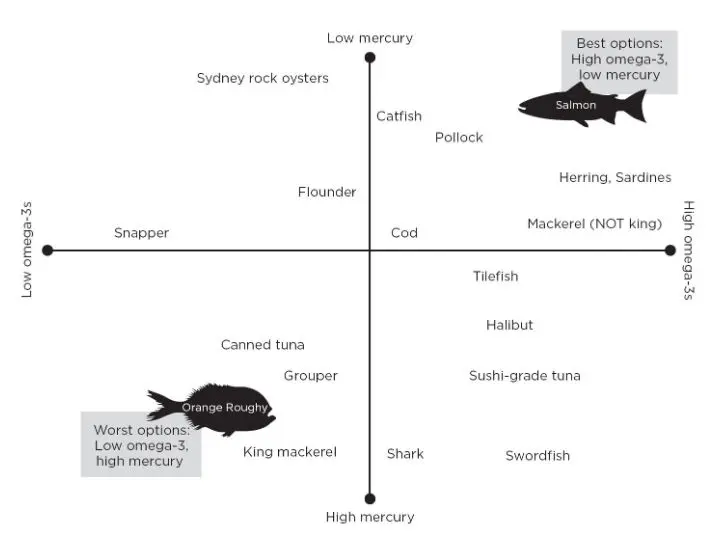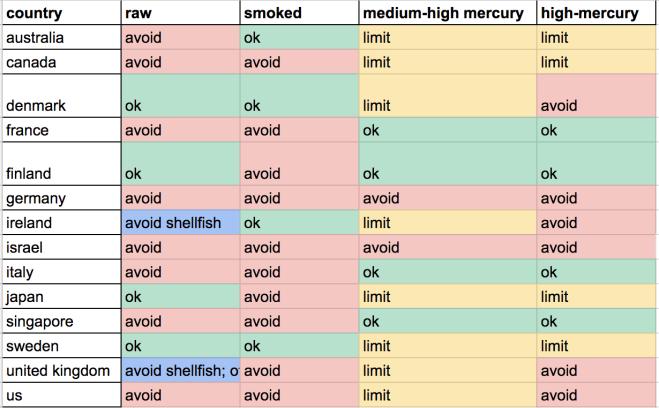Emily Oster, a renowned economist and author, has sparked a debate with her book expecting better where she challenges conventional wisdom related to pregnancy dos and don'ts. One particular topic she focuses on is the consumption of smoked salmon during pregnancy. It's important to unravel the facts and dive deeper into this controversial subject to understand the potential risks and benefits.

The Debate
Smoked salmon is a delicacy enjoyed by many, but due to concerns about food safety during pregnancy, some experts advise against its consumption. This is because smoked salmon is often cured and partially cooked, which raises concerns about bacterial contamination, specifically Listeria monocytogenes.
Listeria is a type of bacteria that can be found in certain types of food and can cause a severe infection known as Listeriosis. During pregnancy, the immune system undergoes changes, making pregnant women more susceptible to infections. Listeriosis can result in serious consequences for both the expecting mother and the developing fetus, including miscarriage, stillbirth, preterm labor, and in some cases, even death.
Emily Oster challenges this conventional wisdom by presenting research that suggests the risk of Listeriosis from consuming smoked salmon during pregnancy is actually very low. She emphasizes that the risk is not limited to smoked salmon alone and highlights that other foods, such as deli meats, soft cheeses, and even bagged salad, also have the potential for bacterial contamination.
The Research
Oster's argument is backed by scientific studies that have investigated the prevalence of Listeria contamination in various food products. A study published in the Journal of Food Protection found that the risk of Listeria contamination in smoked salmon was extremely low. Similar studies have also indicated low levels of Listeria in commercially available smoked salmon products.
Furthermore, Oster argues that the chances of encountering Listeria in general are quite rare. The Centers for Disease Control and Prevention (CDC) estimate the annual incidence of Listeriosis in the United States at around 1,600 cases. This represents a very small percentage of the overall population. When considering the total number of pregnancies in a given year, the risk becomes statistically insignificant.
Cautions to Consider
While the research may suggest that the risk of Listeriosis from consuming smoked salmon during pregnancy is low, it's important to remember that pregnant women are still at an increased risk compared to the general population. The British National Health Service (NHS) suggests that pregnant women should be cautious and limit their intake of smoked or cured fish in order to minimize any potential risk.
Additionally, it's important to ensure that the smoked salmon is from a reliable source and has been properly handled, stored, and cooked. Pregnant women should opt for commercially packaged smoked salmon, as it is less likely to be contaminated compared to homemade or locally sourced versions.
The debate around consuming smoked salmon during pregnancy continues, with differing opinions among experts and expectant mothers alike. While Emily Oster challenges the conventional advice and highlights the low risk of Listeriosis from smoked salmon, it is ultimately up to each individual to make an informed decision based on their personal beliefs, risk tolerance, and guidance from healthcare professionals.
In summary, if you choose to consume smoked salmon during your pregnancy, it is advised to exercise caution, select high-quality commercially packaged products, and follow proper food safety guidelines. As always, consult with your healthcare provider to make the best decision for your unique pregnancy journey.
Frequently Asked Questions
- Can you eat smoked salmon during pregnancy?
- What are the potential risks of consuming smoked salmon during pregnancy?
- What are some alternative sources of omega-3 fatty acids during pregnancy?
Yes, but caution is advised. Pregnant women should opt for commercially packaged smoked salmon and ensure it has been properly handled and stored to minimize any potential risk of Listeriosis.
The main risk is the potential for bacterial contamination, specifically Listeria, which can lead to Listeriosis and have severe consequences for both the expecting mother and the developing fetus.
If you choose to avoid consuming smoked salmon during pregnancy, you can still obtain omega-3 fatty acids from other sources such as low-mercury fish (e.g., salmon), flaxseed, chia seeds, and walnuts.
Table: Pros and Cons of Consuming Smoked Salmon During Pregnancy
| Pros | Cons |
|---|---|
| - Provides omega-3 fatty acids beneficial for fetal development | - Risk of bacterial contamination, specifically Listeria |
| - Low risk of Listeriosis from commercially packaged smoked salmon | - Increased susceptibility to infections during pregnancy |
| - Enjoyment and satisfaction for pregnant women who choose to consume it | - Potential concern of high sodium content in some smoked salmon products |
Please note: This article is for informational purposes only and should not be considered as medical advice. Always consult with a healthcare professional before making any dietary decisions during pregnancy.
If you want to know other articles similar to Smoked salmon in pregnancy: debunking the myth you can visit the Pregnancy category.


Related Articles